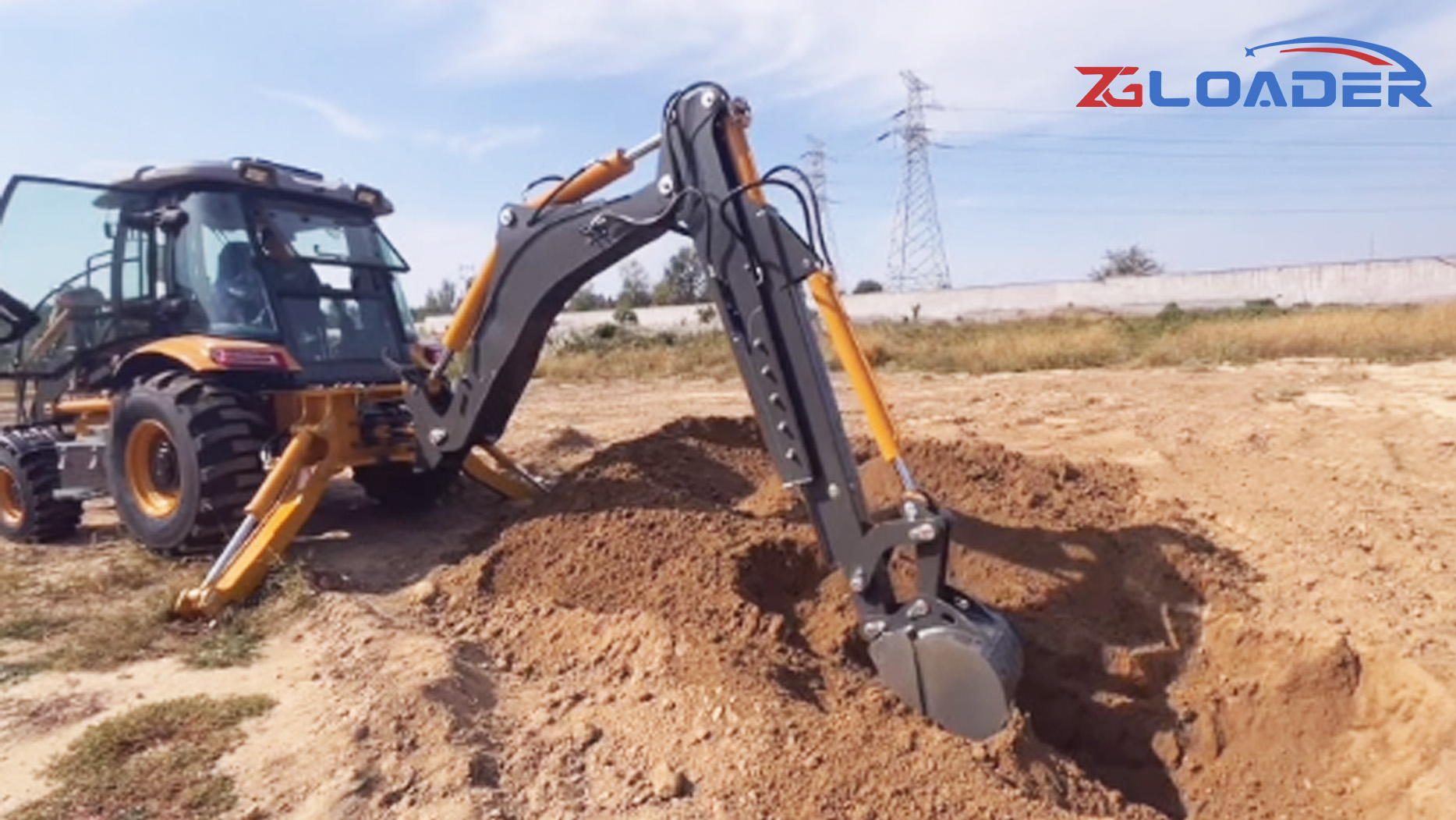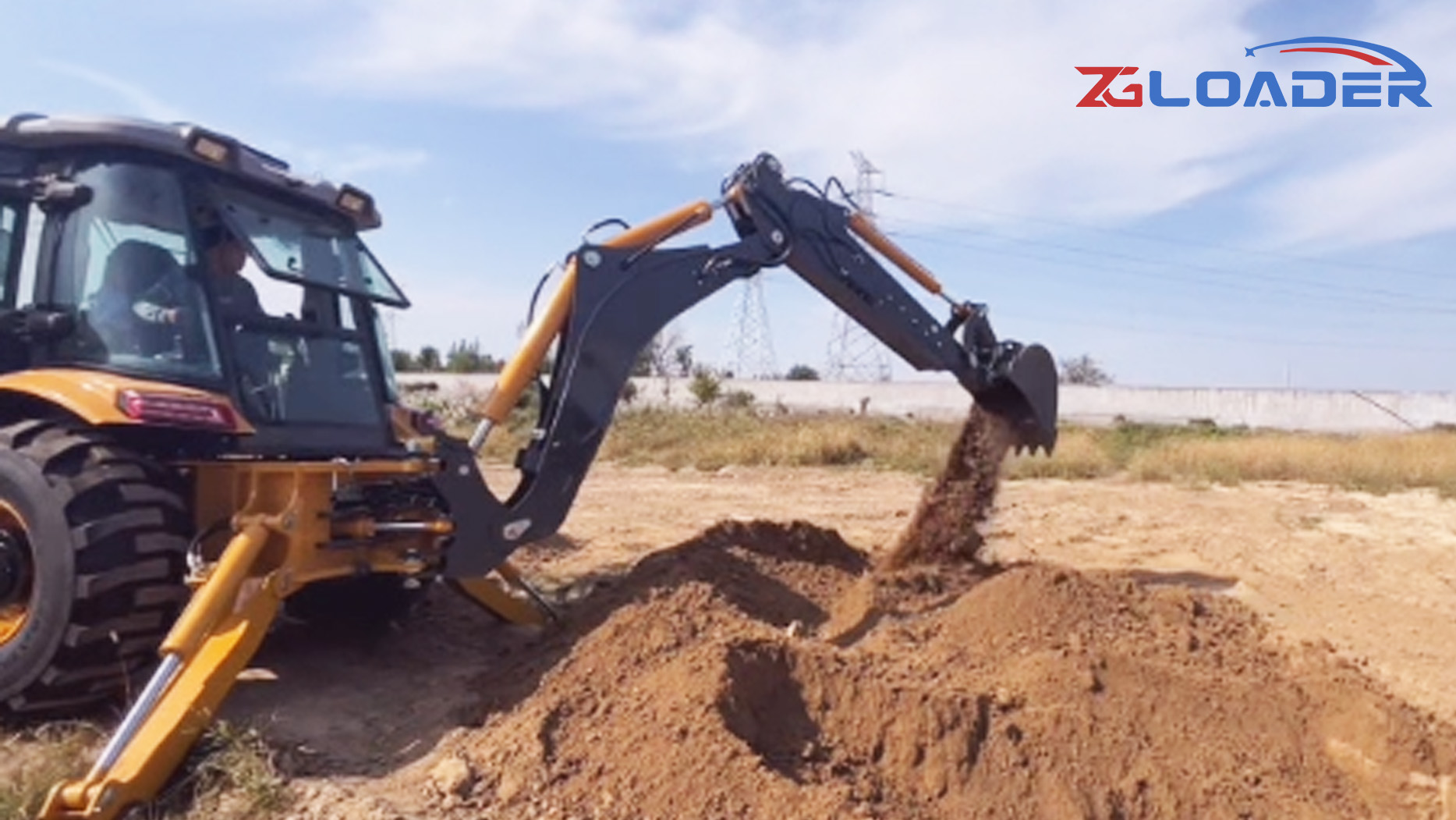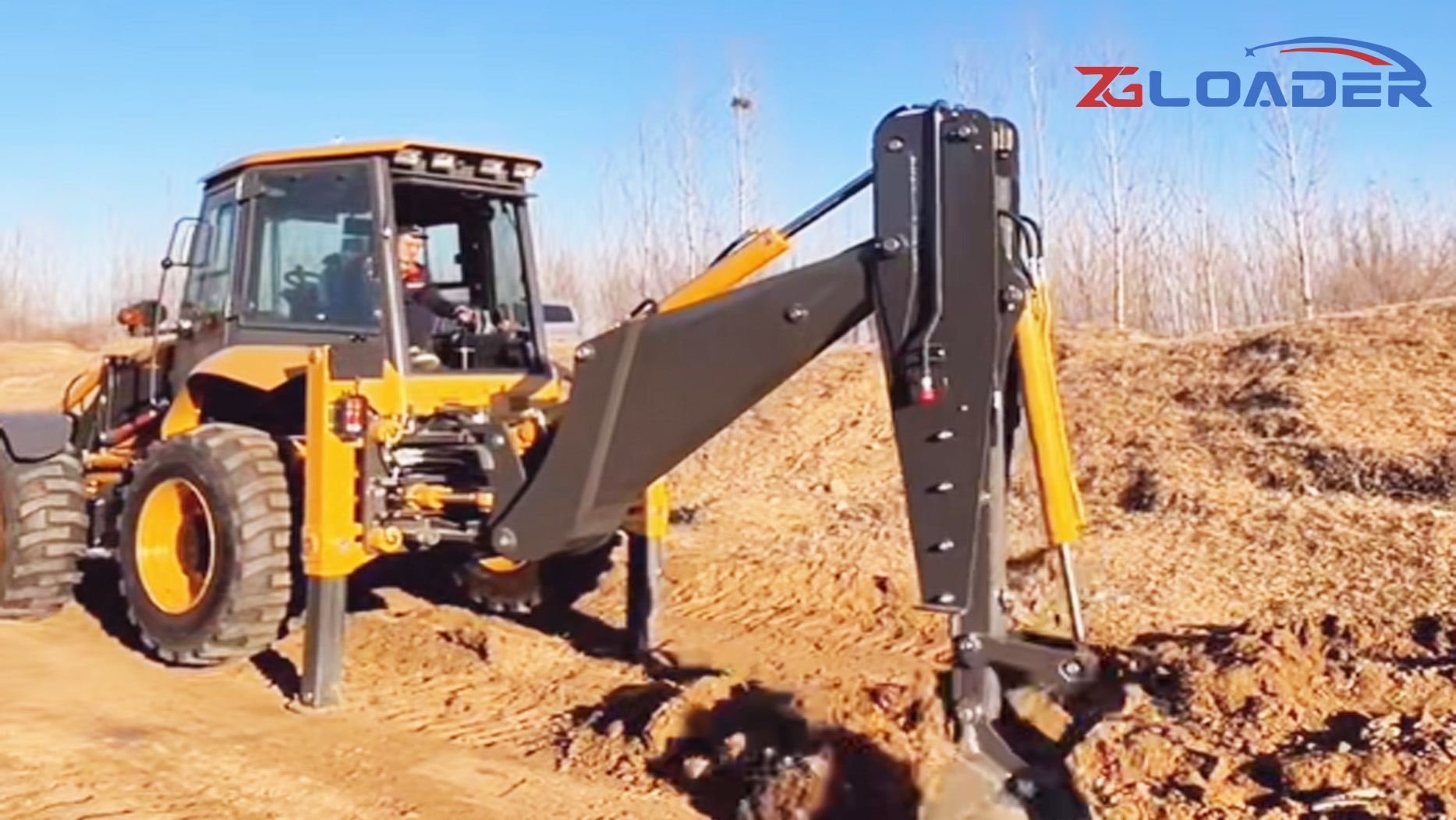In the world of heavy construction and earthmoving, the backhoe loader and the excavator are two of the most recognizable and essential machines. While both are designed for digging and moving earth, they are fundamentally different tools built for different purposes. Choosing between them is a critical decision for any project, as it impacts efficiency, cost, and the overall scope of work. Understanding the key differences between a backhoe loader and an excavator is paramount for selecting the right machine for the job.
At its core, a backhoe loader is a highly versatile, multi-purpose machine, whereas an excavator is a dedicated, powerful digging specialist. The distinctions lie in their design, mobility, power, and the types of tasks they are best suited for. Let's delve into a detailed comparison to illuminate the strengths and weaknesses of each.
1. Design and Anatomy: The Defining Difference
The most obvious difference is in their physical structure and components.
Backhoe Loader: A backhoe loader is a single machine built on a tractor chassis. It has a loader bucket on the front (like a wheel loader) and a backhoe arm with a digging bucket on the back. It is a hybrid, combining the functionality of a loader and an excavator into one unit. The operator typically swivels their seat to switch between using the front loader and the rear backhoe.
Excavator: An excavator is a more specialized machine. It consists of a cab, a powerful engine, and a long digging arm mounted on a rotating house (or turret) that can turn 360 degrees. The entire assembly sits on either a tracked or wheeled undercarriage. The operator never has to leave their seat to dig or dump in different directions.

2. Mobility and Agility
How these machines move and where they can operate is a key differentiator.
Backhoe Loader:
Mobility: Backhoe loaders are wheeled, making them highly mobile. They can drive themselves on roads and job sites, often at speeds up to 25 mph (40 km/h) or more. This self-sufficiency is a major advantage, eliminating the need for a transport truck and making them ideal for municipal work, utility projects, or jobs spanning multiple small sites.
Agility: While mobile, they are not as agile in a digging scenario as an excavator. Their digging reach is limited by the machine's footprint, as they cannot turn 360 degrees.
Excavator:
Mobility: Excavators are typically tracked, giving them excellent stability and traction on soft or uneven terrain. However, their tracked undercarriage means they are slow and cannot be driven on roads. They require a trailer or lowboy truck to be transported between job sites.
Agility: Their 360-degree rotating turret provides superior agility in digging and dumping. An excavator can dig in one direction and swing to dump in another, all from a single position, which is a major time-saver on job sites. Wheeled excavators exist but are still limited in on-road speed compared to backhoe loaders.
3. Power, Reach, and Digging Depth
The power and scale of a task often determine which machine is better suited.
Backhoe Loader:
Power & Reach: They are powerful machines for their size, but an excavator generally has more horsepower, greater breakout force, and a longer reach. A backhoe loader's digging depth and lifting capacity are more limited.
Application: Ideal for smaller to medium-sized digging jobs, such as trenching for utility lines, digging small foundations, or backfilling trenches.
Excavator:
Power & Reach: Designed specifically for heavy-duty digging, excavators have superior horsepower, massive hydraulic power, and much greater digging depths and reaches. They can handle large-scale excavation projects, move dense rock, and load large dump trucks with ease.
Application: Perfect for large foundation digging, mass excavation, demolition, dredging, and any project that requires moving huge volumes of material quickly and efficiently.

4. Versatility and Attachments
While both are versatile, they approach the concept of a multi-purpose machine differently.
Backhoe Loader:
Versatility: Its versatility is built-in. With a loader bucket on the front and a backhoe on the back, it's essentially two machines in one. The front loader is great for grading, pushing material, and loading trucks, while the backhoe excels at digging.
Attachments: While the backhoe arm can take different attachments (hydraulic hammers, augers), the range is more limited than an excavator's.
Excavator:
Versatility: An excavator's versatility comes from its vast range of attachments. The front of the arm is a universal tool carrier. You can swap out the digging bucket for hydraulic hammers, grapples, augers, shears, mulchers, and more. This makes it an incredibly adaptable specialist.
Attachments: An excavator can be a demolition tool, a tree feller, a dredging machine, or a precise digging tool, all by simply changing the attachment.
5. Ideal Job Site Scenarios
Choose a Backhoe Loader when:
Your job requires both digging and loading/hauling tasks on a smaller scale.
You need to move between job sites frequently and quickly without a transport truck.
You are working on a smaller site with limited space.
You are doing utility work, street repair, or small landscaping projects.
You have a limited budget and need one machine to do multiple jobs.
Choose an Excavator when:
Your job involves large-scale, deep, or mass excavation.
You need to move huge volumes of material quickly and load large dump trucks.
You need the reach and power to dig over obstacles or in difficult-to-access areas.
You have a static, large job site (e.g., a mine or a massive construction project).
You need the versatility of a wide range of specialized attachments for demolition, land clearing, or other specific tasks.

6. The Role of Manufacturers: MYZG and ZGLOADER
Brands like MYZG and ZGLOADER (often representing the same or related Chinese manufacturers, like Mingyu Group) play a significant role in providing both backhoe loaders and excavators to the global market.
MYZG/ZGLOADER Backhoe Loaders: These brands offer competitively priced backhoe loaders that provide excellent value and versatility for small to medium-sized projects. They are a strong choice for businesses that need a dependable, multi-purpose machine without the premium price tag of some Western brands.
MYZG/ZGLOADER Excavators: They also produce a range of excavators, from mini excavator models to larger units. These excavators are often chosen for their robust design and affordability, making them accessible for contractors and companies in developing markets who need a powerful, dedicated digging tool.
Consideration: When looking at brands like MYZG and ZGLOADER, it's vital to assess the local dealer support, parts availability, and service network, as this is crucial for the long-term reliability and uptime of any heavy equipment, regardless of its origin.
Conclusion
The choice between a backhoe loader and an excavator is a choice between a generalist and a specialist. The backhoe loader is a Swiss Army knife, a versatile and mobile machine that is perfect for a wide range of smaller tasks. It saves time and money by being a single, self-transporting unit. The excavator, on the other hand, is a powerful specialist, offering unmatched digging power, depth, reach, and a greater range of specialized attachments. While it requires separate transport, its efficiency on large-scale digging projects is unparalleled.
By carefully considering the scale, mobility requirements, and specific tasks of your project, you can select the machine that will be the most efficient, cost-effective, and safe choice for your needs. Whether you choose the versatile hybrid or the powerful specialist, a deep understanding of their differences is the key to a successful operation.
Post time:Aug.06.2025
